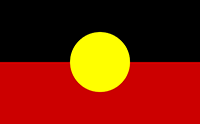Perimenopause & Menopause
The team at Adelaide Mums and Babies Clinic specialises in providing exceptional health care to women. We have heard that women can struggle to find a GP to help them through a difficult part of their life – perimenopause and menopause. It saddens us that some health care professionals lack the knowledge to be able to manage this complex time of a woman’s life. We know women deserve better, and are dedicated to providing holisitic but evidence-based care for women.
This is an area that we are well versed at in managing and can provide thorough care for all of the symptoms you may be facing, as well as a supportive ear. We will not dismiss your concerns nor your symptoms and will help you make sense of what you are experiencing as well as tailor an individual management plan for you.
Below is more information about these phases in a woman’s life. If you are worried you might be experiencing a cluster of symptoms that could be explained by perimenopause/menopause, please feel free to book a “Perimenopause or Menopause” consultation with one of our GPs so that we can help you manage this time in your life.
Perimenopause vs Menopause: At a Glance
Perimenopause is the natural transition your body goes through as it heads toward menopause. During this time, your hormone levels go up and down, which can cause symptoms like irregular periods, hot flushes, trouble sleeping, or mood changes. You might still get pregnant during this time, though your fertility is decreasing.
Menopause is reached when you haven’t had a period for 12 months in a row. It marks the end of your reproductive years. After this point, you’re in what’s called postmenopause, where hormone levels are lower and some symptoms may continue but often become more manageable.
| Feature | Perimenopause | Menopause |
|---|---|---|
| What it is | Transition phase before menopause | One point in time: 12 months without a period |
| Hormone changes | Oestrogen and progesterone fluctuate | Oestrogen stays consistently low; follicle stimulating hormone is high. |
| Periods | Irregular (may be heavier, lighter, skipped) | Stop completely for at least 12 months |
| Symptoms | Hot flushes, mood swings, sleep issues begin | Symptoms may continue but often stabilise or ease |
| Fertility | Declining, but pregnancy still possible | Fertility has ended |
| Typical Age | Late 30s to mid-40s onset, lasts up to 10 years | Around age 51 (on average in Australia) |
| Duration | Months to years | Menopause is a single day — followed by postmenopause |
Perimenopause: Common Symptoms & Signs
- Menstrual changes: Irregular periods, heavier or lighter flow, shorter or longer cycles
- Hot flushes: Sudden feelings of heat, often with sweating and flushing
- Night sweats: Hot flushes during sleep, often disturbing rest
- Sleep disturbances: Difficulty falling or staying asleep
- Mood changes: Irritability, anxiety, depression, or mood swings
- Vaginal dryness: Often leading to discomfort during intercourse
- Decreased libido: Lower interest in sexual activity
- Cognitive changes: “Brain fog,” memory lapses, trouble concentrating
- Fatigue: Persistent tiredness not relieved by rest
- Breast tenderness
- Weight gain: Particularly around the abdomen
- Headaches or worsening of premenstrual migraines
- Urinary symptoms: Increased frequency or urgency
Click here to view the symptom score card by Australian Menopause Society.
Managing Perimenopause Symptoms
| Symptom | Lifestyle Strategies | OTC/Herbal Options |
|---|---|---|
| Hot flushes | Avoid triggers (spicy foods, caffeine, alcohol) | Keep cool: dress in layers, use a fan, sip cold water | Practice slow, deep breathing when a flash starts | Exercise regularly (30+ minutes on most days) and use stress-reduction techniques (meditation, yoga) | Soy products or supplements (contain plant oestrogens) | Omega‑3 (fish oil) supplements may help mood and vasomotor symptoms | Pine bark extract (pycnogenol): some studies show it can reduce hot flushes |
| Mood changes | Aim for 7–9 hours of sleep each night | Exercise most days (30+ min) to boost mood | Lower stress: practice relaxation (yoga, meditation) | Set boundaries and prioritise self-care | Seek support: talk with friends or see your GP | St. John’s wort (used for mild mood swings) | Ginseng supplements: may improve energy and mood |
| Sleep problems | Keep a regular sleep schedule; make the bedroom dark, quiet, and cool | Avoid caffeine/alcohol and heavy meals before bedtime | Wind down with relaxing activities before bed (reading, warm bath); limit screen time | Get regular exercise (preferably earlier in the day) | Valerian root supplements to improve sleep quality | Melatonin (OTC sleep aid) to help reset the sleep cycle |
| Vaginal dryness | Avoid soaps, douches or scents that can irritate vaginal tissue; stay well hydrated | Pelvic floor exercises may improve blood flow | Use generous amounts of water-based lubricant during sex | Vaginal moisturizers (e.g., Replens) applied a few times a week to keep tissue moist |
If these measures are not enough, then there are many more medication options that can help reduce these symptoms. Our GPs are more than willing to have an in-depth discussion about the pros and cons of each option and come up with a plan to suit your lifestyle.
Booking an appointment
With new Medicare rebates announced from July 1st 2025, we have new appointments available for perimenopause and menopause assessments. These appointments will consist of a 30-minute component with a nurse, followed by 30 minutes with your GP. These appointments are available to book online via our HotDoc page for Rose Park or Ashford, under the name “perimenopause or menopause assessment”. You may require more than the initial consult to complete this assessment.
Resources
Jean Hailes Menopause Website
Australasian Menopause Society Website
Appointment Booking Reminder
To book an appointment, please:
- Call reception OR
- Book online via our website or booking app (HotDoc)
- If you’ve booked online but feel your issue is more urgent, please call reception directly — we may have reserved urgent appointments available.
**Please note:**
Appointments cannot be made by emailing the clinic, doctors, or nurses. This ensures all bookings are handled promptly and appropriately.
Thank you for your understanding and helping us provide the best care possible.



